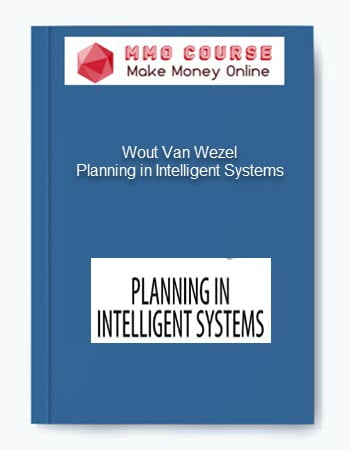Wout Van Wezel – Planning in Intelligent Systems
$997.00 $31.00
GB Instant : This product will available in 24h later after you pay.
Sale Page: N/A
Description
Wout Van Wezel – Planning in Intelligent Systems
This text begins with the principle that the ability to anticipate and plan is an essential feature of intelligent systems, whether human or machine. It further assumes that better planning results in greater achievements. With these principles as a foundation. Planning in Intelligent Systems provides readers with the tools needed to better understand the process of planning.
Here’s what you’ll get:
- Part One, “Theoretical,” discusses the predominant schools of thought in planning: psychology. And cognitive science, organizational science, computer science, mathematics, artificial intelligence, and systems theory. In particular, the book examines commonalities and differences among the goals, methods. And techniques of these various approaches to planning. The result is a better understanding of the process of planning through the cross-fertilization of ideas. Each chapter contains a short introduction that sets forth the interrelationships of that chapter to the main ideas featured in the other chapters.
- Part Two, “Practical,” features six chapters that center on a case study of The Netherlands Railways. Readers learn to apply theory to a real-world situation and discoverhow expanding their repertoire of planning methods can help solve seemingly intractable problems.
Delivery Policy
When will I receive my course?
You will receive a link to download your course immediately or within 1 to 21 days. It depends on the product you buy, so please read the short description of the product carefully before making a purchase.
How is my course delivered?
We share courses through Google Drive, so once your order is complete, you'll receive an invitation to view the course in your email.
To avoid any delay in delivery, please provide a Google mail and enter your email address correctly in the Checkout Page.
In case you submit a wrong email address, please contact us to resend the course to the correct email.
How do I check status of my order?
Please log in to MMOCourse account then go to Order Page. You will find all your orders includes number, date, status and total price.
If the status is Processing: Your course is being uploaded. Please be patient and wait for us to complete your order. If your order has multiple courses and one of them has not been updated with the download link, the status of the order is also Processing.
If the status is Completed: Your course is ready for immediate download. Click "VIEW" to view details and download the course.
Where can I find my course?
Once your order is complete, a link to download the course will automatically be sent to your email.
You can also get the download link by logging into your mmocourse.hk account then going to Downloads Page.
Related products
Total sold: 9
Total sold: 5
Total sold: 2
Total sold: 11
Total sold: 10
Total sold: 14








![Simpler Trading – 10X Trade Formula Options [Complete + Indicator]](https://mmocourse.org/wp-content/uploads/2023/02/Simpler-Trading-–-10X-Trade-Formula-Options-Complete-Indicator.jpg)

